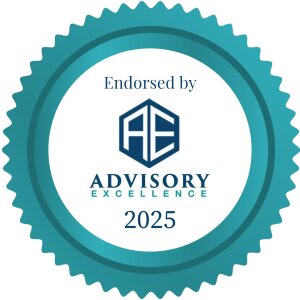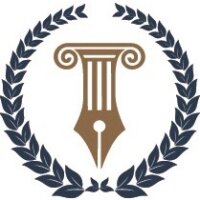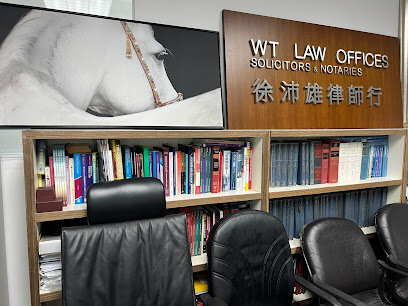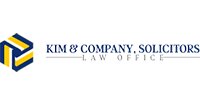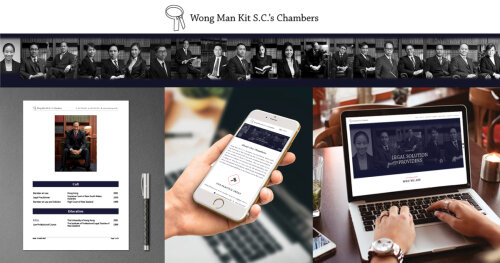Best Education Law Lawyers in Central
Share your needs with us, get contacted by law firms.
Free. Takes 2 min.
List of the best lawyers in Central, Hong Kong
About Education Law in Central, Hong Kong
Education law in Central, Hong Kong, encompasses the legal issues and rights related to the education system, including the regulation of schools, teachers, and student rights. Education law ensures compliance with statutory and regulatory requirements, aiming to create a fair, accessible, and high-quality educational environment for all. In Hong Kong, the Education Ordinance and related regulations govern aspects like school management, curricula, student admissions, and the conduct and standards expected of educators and educational institutions.
Why You May Need a Lawyer
There are several situations where individuals or institutions may require legal assistance in education law. Parents may seek legal help for issues regarding special education needs or disputes over school placements. Schools may need representation during regulatory compliance assessments or when facing actions regarding the rights and conduct of students. Teachers might require legal advice if facing disciplinary measures or employment disputes. Additionally, any party may need assistance to understand and navigate the complexities of education regulations and policies.
Local Laws Overview
The foundation of education law in Central, Hong Kong, is rooted in several key ordinances and regulations. The Education Ordinance (Cap. 279) sets the basic framework for the management and operation of schools. The Education Regulations detail specific requirements related to school registrations, teacher qualifications, and curriculum standards. The Disability Discrimination Ordinance and the Family Status Discrimination Ordinance provide additional legal protections, ensuring that all students receive equal access to educational opportunities without facing discrimination.
Frequently Asked Questions
What is the Education Ordinance, and why is it important?
The Education Ordinance (Cap. 279) establishes the legal foundation for education in Hong Kong. It is critical as it outlines the requirements for the administration and management of schools and sets the standards for educational practices.
How does Hong Kong handle cases of discrimination in schools?
Discrimination in schools is handled under several ordinances, such as the Disability Discrimination Ordinance and the Family Status Discrimination Ordinance. These laws ensure students are not discriminated against based on disability or family status.
Can students with special needs receive accommodations?
Yes, students with special needs are entitled to accommodations to facilitate their education. Schools are required to provide necessary support, including special education services, as per the guidelines outlined by the Education Bureau.
What are the legal obligations of private schools in Central?
Private schools must follow the same basic regulatory framework as public schools outlined in the Education Ordinance. They must obtain proper registration, employ qualified teachers, and adhere to the curriculum standards established by the Education Bureau.
How can I resolve a dispute with a school about my child's education?
Disputes can often be resolved through informal negotiation or mediation. However, if necessary, legal action can be pursued through the courts or by filing a complaint with the appropriate governmental body, such as the Equal Opportunities Commission.
What should I do if my child faces disciplinary action that I believe is unjust?
If you believe disciplinary action is unjust, you should first discuss your concerns with the school. If the issue remains unresolved, it may be necessary to seek legal advice to understand your rights and possible actions.
What are the qualifications required to teach in schools in Hong Kong?
Teachers in Hong Kong must meet the qualifications established by the Education Bureau, which generally include relevant degrees and teaching certifications. Detailed requirements vary depending on the teaching level and the subject matter.
Are international schools subject to the same regulations as local schools?
International schools in Hong Kong must meet certain local regulations, particularly regarding teacher qualifications and health and safety standards, but they have more flexibility in curriculum design compared to local schools.
Can homeschooling be legally conducted in Hong Kong?
Homeschooling is not officially recognized as an alternative to formal schooling in Hong Kong. Children of school-age are required to attend a registered school unless an exemption is granted by the Education Bureau under specific circumstances.
Who regulates education standards in Hong Kong?
The Education Bureau is the main body responsible for regulating education standards, providing guidelines, and overseeing the implementation of educational policies in Hong Kong.
Additional Resources
Several resources and organizations can provide further information and assistance related to education law in Hong Kong:
- Education Bureau (EDB) - Handles educational policies and administrative matters.
- Equal Opportunities Commission (EOC) - Addresses issues related to discrimination.
- Hong Kong International Schools Association (HKISA) - Provides information specific to international schools.
Next Steps
If you need legal assistance with an education law issue in Central, Hong Kong, consider taking the following steps:
- Identify the specific issue and gather all relevant documentation.
- Consult with a qualified education law attorney who understands the local legal landscape.
- Consider alternative dispute resolution options, such as mediation, before pursuing formal legal actions.
- Contact governmental bodies such as the Education Bureau or the Equal Opportunities Commission for guidance and support.
By understanding your rights and the legal processes involved, you can navigate education law matters more effectively and ensure the best possible outcomes for all parties involved.
Lawzana helps you find the best lawyers and law firms in Central through a curated and pre-screened list of qualified legal professionals. Our platform offers rankings and detailed profiles of attorneys and law firms, allowing you to compare based on practice areas, including Education Law, experience, and client feedback.
Each profile includes a description of the firm's areas of practice, client reviews, team members and partners, year of establishment, spoken languages, office locations, contact information, social media presence, and any published articles or resources. Most firms on our platform speak English and are experienced in both local and international legal matters.
Get a quote from top-rated law firms in Central, Hong Kong — quickly, securely, and without unnecessary hassle.
Disclaimer:
The information provided on this page is for general informational purposes only and does not constitute legal advice. While we strive to ensure the accuracy and relevance of the content, legal information may change over time, and interpretations of the law can vary. You should always consult with a qualified legal professional for advice specific to your situation.
We disclaim all liability for actions taken or not taken based on the content of this page. If you believe any information is incorrect or outdated, please contact us, and we will review and update it where appropriate.



